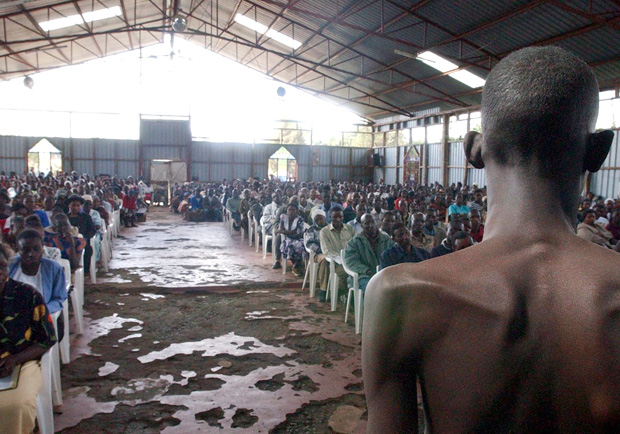Willy Mutunga, a former Ford Foundation executive now turned chief justice of Kenya's Supreme Court, has long made headlines. During his campaign, it was for the single gold earring he wore. Once elected, he submitted the nation's judges to vigorous vetting sessions aired live on national TV. Some did not pass.
But recently, Mutunga ignited debate when he publicly proposed that Kenya's pastors undergo similar vetting by the courts in order to weed out opportunists. (He declined an interview with CT.)
The problem of "fake pastors" is not new to Kenya. Tales of dubious divine healings and questionable behavior have become common, notes Mwenda Njoka, founder of the Africa Center for Investigative Journalism.
What is new is the level of public awareness. For example, shortly before Mutunga's speech, a TV exposé captivated the nation with the case of Michael Njoroge, pastor of Fire Ministries, who allegedly paid prostitutes to give false testimonies about miracles. (He denied the claims.)
Also new is how technology has made it easier to fleece the faithful. A pioneering mobile-to-mobile money transfer service called M-Pesa, which has won accolades from the Gates Foundation and others for making banking accessible to poor and rural Africans, is en vogue among televangelists. A pastor will display his cell phone number and ask those seeking miracles to send money. The sums get higher as the presumed difficulty of the miracle increases.
Given this backdrop, Mutunga's radical proposal has split Kenyans.
Paul Muasya, the regional head of the Seventh-day Adventist Church, gave Mutunga his full backing. "We believe it will ensure only those called to proclaim the word of the Lord do so, and not people who want to turn the church into a business venture," he told The Star.
Philip Kitoto, an influential Assemblies of God pastor and author, disagrees. He believes existing church bodies should step up their watchdog role. "As much as the call of God on a person is key, God demands … the highest integrity," he said. "As ministers, we should not fear scrutiny."
Also opposed is Joseph Methu, chairman of the Federation of Evangelical and Indigenous Churches of Kenya. "Ours is a calling," he said. "We are not answerable to any of the three arms of the government."
Social researcher John Nyakwar Odande thinks vetting pastors—by courts or by churches—will prove to be quite an undertaking. "The moment the vetting team comes to your church and tells you that your pastor is fake, whom will you believe?
"Kenyans are a spiritual lot, and are greatly attached to our pastors. I think it is an exercise in futility."










